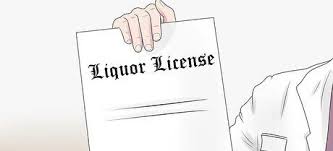
Obtaining an alcohol license is a crucial step for individuals or businesses looking to engage in the sale, distribution, or manufacturing of alcoholic beverages. The eligibility criteria for obtaining such licenses vary from region to region, reflecting the diverse regulatory landscape surrounding the alcohol industry. This article explores the fundamental eligibility criteria for acquiring an alcohol license and delves into specific requirements for different types of licenses.
Importance of Alcohol Licenses:
Alcohol licenses serve as a legal authorization to engage in activities related to the sale, distribution, or manufacturing of alcoholic beverages. These licenses are essential not only for businesses such as bars, restaurants, and liquor stores but also for individuals involved in the production or wholesale of alcoholic products. The issuance of alcohol licenses is subject to stringent eligibility criteria to ensure responsible and lawful practices within the alcohol industry.
General Eligibility Criteria:
Several common eligibility criteria are typically applicable when applying for an alcohol license. Understanding these criteria is essential for prospective licensees to navigate the licensing process successfully.
Age Requirement: One of the most basic eligibility criteria is the legal age requirement. Individuals applying for an alcohol license must be of legal drinking age in the respective jurisdiction. This age requirement ensures that only responsible and mature individuals are entrusted with the responsibilities associated with handling and selling alcoholic beverages.
Legal Residency: Many jurisdictions require applicants to be legal residents of the country or region where they intend to obtain the alcohol license. This criterion ensures that the license holder is subject to local laws and regulations, contributing to effective oversight and enforcement.
Criminal Record: Applicants are often subjected to background checks to assess their criminal history. Convictions related to alcohol-related offenses or other serious crimes may disqualify individuals from obtaining an alcohol license. This criterion aims to maintain the integrity of the alcohol industry and protect public safety.
Financial Stability: Financial stability is a crucial factor in the eligibility assessment for an alcohol license. This criterion ensures that license holders have the financial capacity to operate a business responsibly, meet financial obligations, and comply with regulatory requirements.
Specific Requirements for Different Types of Licenses:
The type of alcohol license sought determines additional, specific eligibility criteria. Different licenses cater to various aspects of the alcohol industry, such as on-premises consumption, off-premises consumption, manufacturing, and wholesale distribution.
On-Premises Consumption License: This license is typically required for establishments such as bars and restaurants where alcoholic beverages are consumed on the premises. In addition to the general eligibility criteria, applicants for on-premises consumption licenses may need to demonstrate compliance with zoning regulations, health and safety standards, and capacity requirements.
Off-Premises Consumption License:
For businesses like liquor stores where customers purchase alcohol to consume off-site, specific criteria may include zoning compliance, secure storage facilities, and adherence to operating hours. The aim is to ensure responsible retail practices and prevent the sale of alcohol to underage or intoxicated individuals.
Manufacturing License: Individuals or entities involved in the production of alcoholic beverages often need a manufacturing license. Criteria for this type of license may include the use of approved facilities, compliance with quality standards, and adherence to production quotas. Additionally, environmental and safety considerations may play a role in the eligibility assessment.
Wholesale License: Wholesale licenses are required for businesses engaged in the distribution of alcoholic beverages to retailers. Eligibility criteria may include the ability to demonstrate a secure supply chain, adherence to labeling requirements, and compliance with tax regulations. Wholesale license holders play a crucial role in ensuring the legal and responsible distribution of alcoholic products.
Renewal and Compliance:
Once granted, alcohol licenses are subject to renewal, and license holders must adhere to ongoing compliance requirements to maintain their licenses.
Renewal Process: License renewal processes vary by jurisdiction but generally require license holders to submit updated documentation, pay renewal fees, and demonstrate ongoing compliance with relevant regulations. Renewal periods may range from annually to biennially, depending on the type of license and local regulations.
Compliance with Regulations: License holders must continuously comply with local, state, and federal regulations governing the sale, distribution, or manufacturing of alcoholic beverages. This includes adherence to age verification procedures, responsible service practices, tax obligations, and any other regulatory requirements specific to the type of license held. Non-compliance can lead to fines, suspension, or revocation of the license.
Consequences of Violating License Terms:
Violating the terms and conditions of an alcohol license can have serious consequences for license holders. Understanding these consequences is vital for maintaining legal and ethical business practices.
7.1. Fines and Penalties: Regulatory authorities have the power to impose fines and penalties for various violations, such as selling alcohol to minors, serving intoxicated individuals, or failing to comply with operating conditions. The severity of fines may vary based on the nature and frequency of the violations.
7.2. License Suspension or Revocation: Serious or repeated violations of license terms can lead to the suspension or revocation of an alcohol license. This action is taken to protect public safety, maintain the integrity of the alcohol industry, and discourage unlawful practices.
Conclusion:
In conclusion, understanding the eligibility criteria for obtaining an alcohol license is essential for individuals and businesses seeking to enter the alcohol industry. The stringent criteria aim to ensure that license holders are responsible, law-abiding, and capable of contributing positively to public safety. Different types of licenses come with specific requirements, reflecting the diverse facets of the alcohol industry, from on-premises consumption to manufacturing and wholesale distribution.
Navigating the application process, which involves thorough documentation, payment of fees, and compliance with waiting periods, is a crucial step toward obtaining an alcohol license. Once granted, license holders must prioritize ongoing compliance with regulations, including age verification, responsible service practices, and tax obligations. Failure to comply can result in fines, license suspension, revocation, legal consequences, and disruptions to business operations.
Prospective licensees should be aware of the potential consequences of violating license terms and take proactive measures to prevent such violations. Regular training for staff, staying informed about changes in regulations, and maintaining a commitment to responsible business practices are essential elements of successful alcohol license management.










